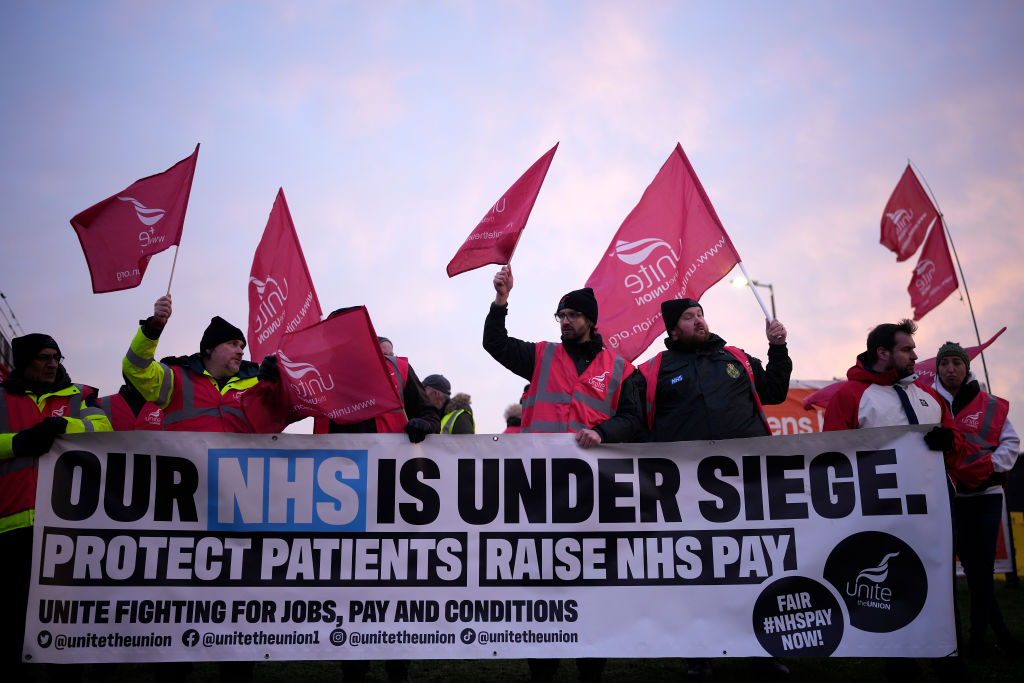
The NHS turns 75 this year, but it hardly feels like a moment to celebrate. The successes of our universal healthcare model are being overshadowed by the bleak picture we’re currently reading in the news.
The service is in crisis. There are up to 500 people dying every week from over-stretched hospital emergency care. There are widely reported issues with demand, patient flow, an ever-increasing backlog and huge seasonal pressures. This winter we have seen a series of strikes, including the biggest walkout in NHS history. Without any meaningful, long-term plans for improvement, the system and the staff are at breaking point.
There is no disputing that the Covid-19 pandemic has exacerbated the problems, but the government can’t keep using this as an excuse to hide the stark reality that our health service has been in decline for years. More funding is desperately needed, particularly after years of skimping on capital investment, but money alone is not sufficient to meet the scale of the challenges. The current model of a hospital-led system focused on treatment has diminishing returns in the context of the 21st-century demands emanating from communities.
Our population is getting older, with increasingly complex health issues and more people living with multiple long-term conditions. If we don’t approach these demands differently, we will never put our NHS on a sustainable footing. Alongside tackling the current pressures, we urgently need a parallel focus on prevention and self-management.
The NHS needs to rediscover its original purpose before it is too late. The 1942 Beveridge Report proposed a health service for prevention and comprehensive treatment, available to all members of the community. And yet prevention remains in the shadow of acute care. For more than a decade, we’ve seen public health funding slashed in real terms, equivalent to a reduction of £1bn since 2015, despite evidence that spending through the public health grant is three to four times more cost-effective than NHS expenditure. It should be no surprise that absolute life expectancy and years of healthy life expectancy are both falling. Those at most risk of ill health are experiencing the effects of this disproportionately.
Waiting lists for non-urgent treatment remain lengthy, routine appointments are challenging to obtain, and even in emergency services waiting times are at an all-time high. All this brings huge risks in terms of quality of care. The demand pressures will inevitably impact the high standards of excellence and professionalism we have come to expect and that NHS staff want to achieve.
Staying true to its founding principles, access to NHS treatment must be based on clinical need. However, in a growing number of cases, individuals are turning to private treatment to receive timely care. In effect, all this is combining to exacerbate inequalities in healthcare access that many are working hard to combat. As a proportion of GDP, Britons now pay almost as much as Americans on out-of-pocket healthcare spending, while the poorest 20 per cent of households have increased their spend on hospital costs by over 100 per cent in the past decade. The principles of a service that is free and universal are under threat.
It’s time to rebalance the system so there is greater parity between prevention and treatment. Without shifting to a more sustainable, preventative approach we risk further atomisation into a private healthcare model, creating an informal two-tier system.
Prevention will be about reducing the incidence of diseases and health conditions, and precluding the need for treatment in many more cases. To achieve this, we need to consider the wide-ranging social determinants of health that happen outside of hospital walls: poverty, long-term unemployment, poor-quality housing, low pay, stress and poor lifestyle choices. The healthcare system must look to work with communities to understand and address these factors.
We should also broaden our understanding of prevention to include self-management. Enabling people to manage their health issues outside of the hospital setting would reduce their reliance on healthcare professionals, and help them to be more active participants in their own health and wellbeing. This also means understanding their wider communities of support and working with people to design services that better meet their needs.
This more community-powered approach to healthcare, including significant investment in social care and public health, would in turn reduce demand on acute services. To make this a reality, we need government and national NHS bodies to move away from target-driven performance metrics.
A radical shift is needed if the health service is to maintain the principles on which it was founded. But with an immediate pivot to focus on preventing illness as much as treating it, the NHS might still be with us to celebrate the next milestone birthday.
Read more:
The NHS is “a sickness service, not a health service,” say MPs
Can “virtual wards” fix the NHS’s state of emergency?
Just repeating “Reform!” won’t magically fix the broken NHS



